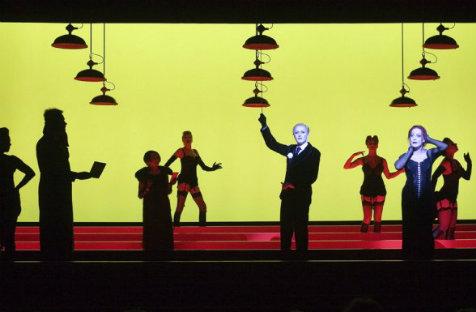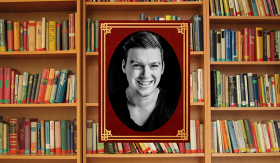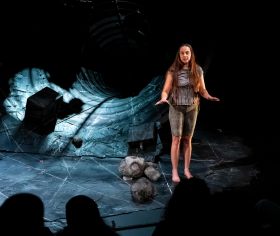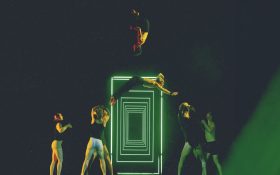It’s not often that you come away from a night out at the theatre feeling like your life has been improved by seeing the production in question, but that is the impression left by the Berliner Ensemble’s The Threepenny Opera at the Perth Festival. This was indeed a triumphant expression of the power of art, music, song and storytelling, and a privilege to experience.
Written by Bertolt Brecht, with music by Kurt Weill, The Threepenny Opera premiered in Berlin in 1928, and has lost none of its relevance in the interim. Its sharp observations about bourgeois levels of comfort are strikingly and brilliantly emphasised in this production directed by American theatre artist Robert Wilson (co-creator with Philip Glass of the well known Einstein on the Beach).
Brecht’s Marxian theory of drama did not follow Aristotle’s view that the audience should be made to believe that what they are witnessing is happening here and now; rather, he believed it should follow the method of the epic poet’s art, so that the audience should watch with critical detachment rather than seeing the performance as an illusion of reality.
This may sound like a rather clinical approach to theatre-making, but it doesn’t come across like that in this production by the Berliner Ensemble (which Brecht himself founded in 1949). Excellent voice control in the declamatory passages highlighted genuine emotion, and the device of clown-style white face make-up created caricatures that somehow emphasised the characters’ frailty as individuals. It was also refreshing to see such a diverse array of actors – large, small, old, young, beautiful and unique, and to hear such powerful renditions of well known songs such as ‘Jenny’s Song’ and ‘Cannon Song’.
Wilson demonstrates a fantastic ability to create tableaus with his 20 or more actors, using light and shadow to considerable artistic effect. These formal posed groupings don’t detract at all from the story-telling, giving it more poignancy, as the expressive actors use their hand, or hip, or some other body part to create a powerful character meaning.
The Threepenny Orchestra must also receive their dues, displaying as they do an exquisite sense of timing in percussive interventions.
The Threepenny Opera’s combination of music and text is something unique in musical theatre history and its power is incredibly resonant. Wilson says ‘The look of the Brechtian theatre space was something very special, its sound was something very special’ and that is indeed what we were lucky enough to see – a truly special night at the theatre; a once in a lifetime experience.
Rating: Five stars
The Threepenny Opera
A Play by Bertolt Brecht
Adapted from Elizabeth Hauptmann’s German version of John Gay’s The Beggar’s Opera
Performed by The Berliner Ensemble and The Threepenny Orchestra
Lyrics by Bertolt Brecht
Music by Kurt Weill
Direction, Set Design and Lighting by Robert Wilson
Co-directed by Ann-Christian Rommen
Costumes designed by Jacques Reynaud
His Majesty’s Theatre, Perth
8 – 11 February
Perth Festival 2013
www.perthfestival.com.au
8 February – 2 March





